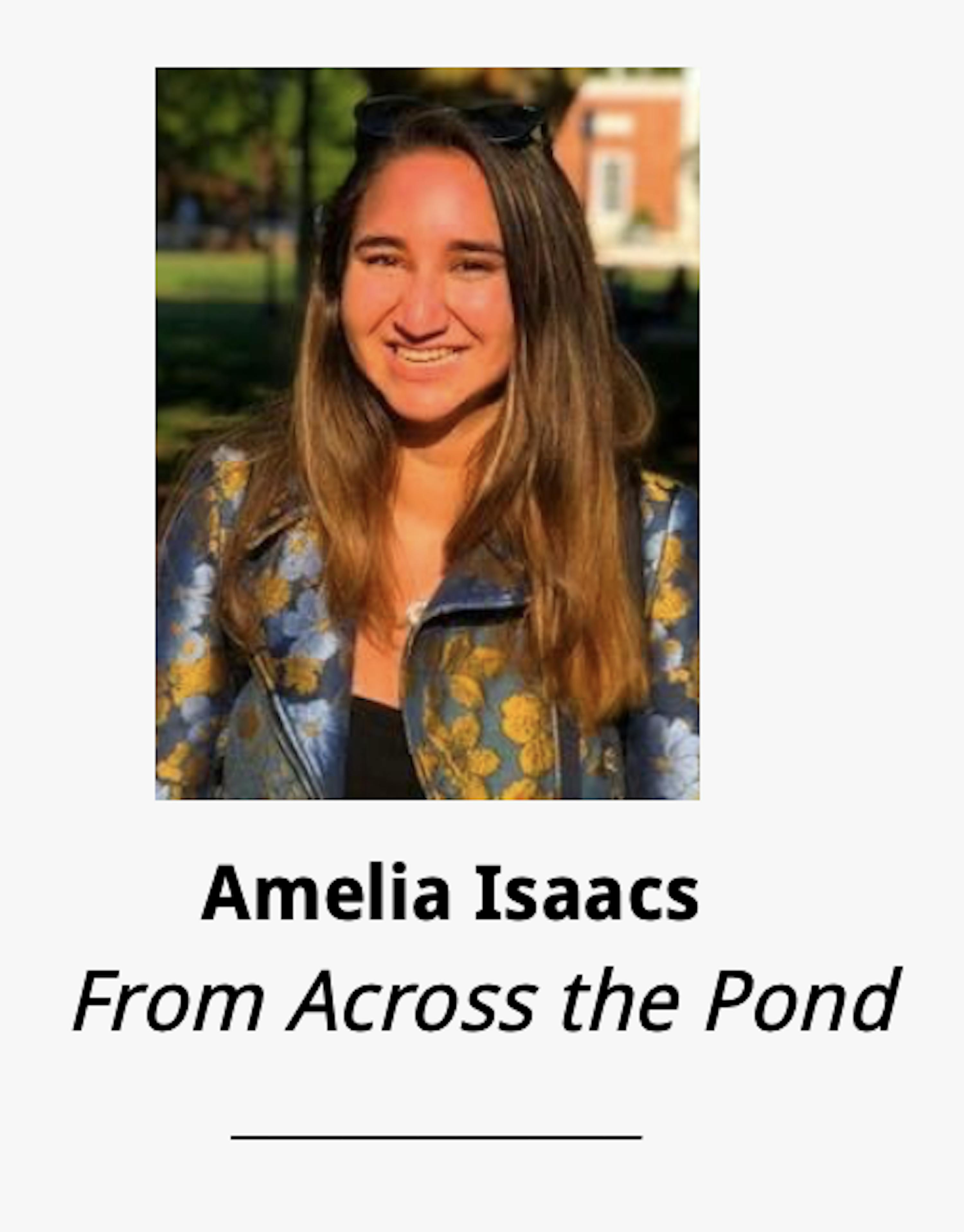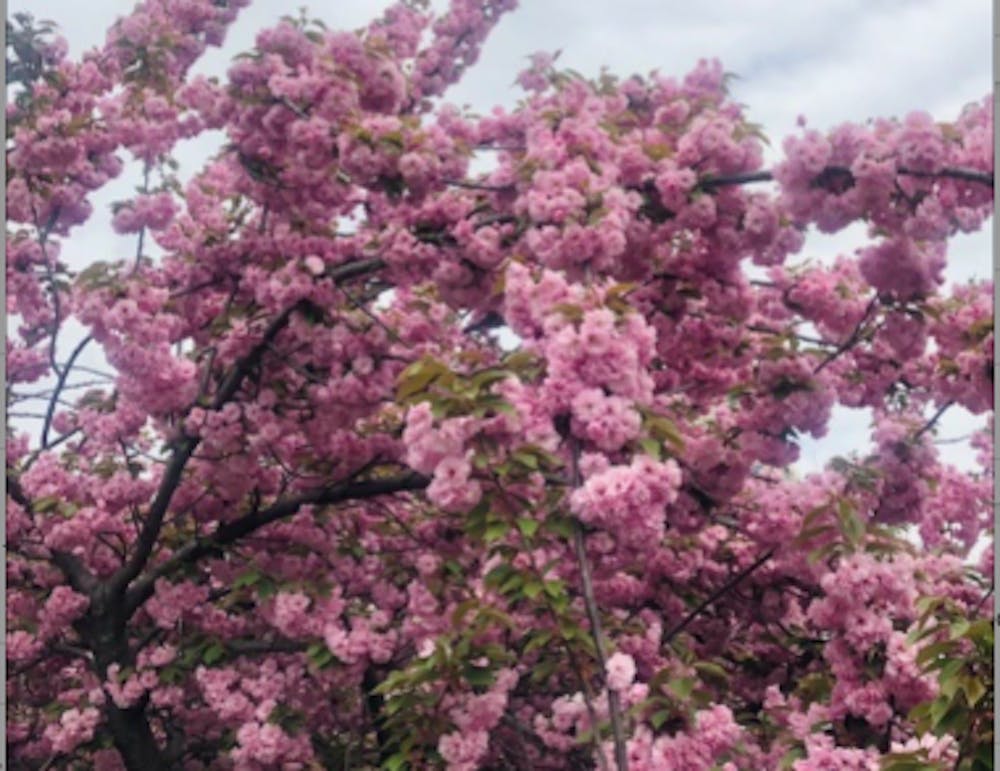
When I was in what my secondary school called the Vth and all of America calls freshman year of high school, I took part in an exchange program with a school in D.C. When our plane landed, we were shuttled to the school in yellow school buses. We passed the Watergate Hotel on the way. My friends bought hoodies and coffee cups with the school’s name on them to take home to London. I saw huge sports fields and people playing American football. It was the first time that I found myself truly immersed in American culture.
One part of American culture I haven’t been able to get on board with is a real interest in the British monarchy. So I have something to admit. It has been five days (or four if you’re in the U.K.) since Meghan Markle and Prince Harry appeared in a magical garden and talked to Oprah Winfrey, and I still haven’t watched their interview. It’s not that I don’t think it was important or care about the issues raised; I just don’t feel the need to watch it. I’ve read enough interviews (and seen enough memes) to know enough of what was discussed.
My exchange and her family had a lot of questions for me, most of which I was more than happy and able to answer. But the one thing that they had the most questions about was the royal family. Unfortunately, I had very few answers for them. While I’m by no means joining #AbolishTheMonarchy on Twitter, I also didn’t join the 28.4 million people across the U.K. and the U.S. that tuned in for two hours to hear two former senior royals speak.
But I also had my fair share of questions for my host family. Some of those were answered over the course of the two weeks, some over the past three and a half years. But many, I think, will still remain unanswered when I graduate in a few months’ time.
One American phenomenon I will never understand is the Super Bowl. A month ago now, I tuned in with my roommates. We were a gathering of three in the stadium of our living room. We were not allowed to go anywhere or see anyone else. I hadn’t been outside in 56 hours, but that was my own fault. I drank root beer for the first time, and it tasted like mint.
We muted the football because we were fully aware that we were there for the snacks and not the score, and we watched a replay on YouTube of the incredible Amanda Gorman instead. My mind wandered away and through the semester to come, as I tried to ground myself in the moment in one of many lasts that I will have over the next few months. I focused on the crunch of the Doritos, the softness of the blanket around me, the scent of Bath & Body Works white fir.
Three years ago, I watched the Super Bowl for the first time. It was one of the most American days I’ve ever had. I crowded into a rearranged dorm room with distant friends from my pre-Orientation group and an array of strangers. That’s hard to imagine now, and it feels weird to type even though it was in a very pre-COVID-19 world. Now, watching the Super Bowl that looks almost normal aside from the occasional mask, feels wrong. How have we prioritized sports to the extent that this is possible? A crowd full of health-care workers and cardboard cutouts.
Wardrobes had been moved, beds had been lofted and at least 14 of us crammed our way into a double-room dorm. Armed with notepad and pen, I took diligent notes on the strange craze that seemed to be Super Bowl commercials. I watched as people shouted along at the TV and ranked their favorites. I started to understand why my editor had told me it would be interesting to cover adverts during a sports game.
In my new sorority’s shirt that didn’t yet feel my own, I sat, covered in glitter and exhausted. It was bid day. I made awkward small talk with other women in the room who were wearing shirts from other organizations. I found someone who loved musicals as much as I do, and we spent an hour talking about them while people played football in the background. We had lunch in the dining hall once after that day, and then our interactions were reduced to occasional smiles across quads.
Somehow, despite not learning the rules of the game until the last two minutes, I still remember that the Eagles won. Unfortunately, I also remember Justin Timberlake’s lackluster performance. I wrote a second article about that, this time for the Arts & Entertainment section. I bled my Britishness dry with as many witty, and occasionally scathing, comments about American culture as I possibly could.
This year, I ran sorority recruitment from my bedroom with Greek letters on the wall. I somewhat understood the game that played in the background while I wrote my Spanish homework. I have a fridge full of White Claws and ready-to-bake cookie dough in my freezer.
It’s been three years, but I still get tired and forget to consciously say sweater instead of jumper or zucchini instead of courgette. I explain jumpsuits and playsuits, dungarees and overalls. I ask what a biscuit is, and people think I’m joking.
I have watched Britain leave the European Union. I have become old enough to vote. I have met Harry and Meghan. And I still do not understand the obsession with the monarchy. I do not understand the Super Bowl. I don’t even really understand Fahrenheit, as much as I’ve tried. Over the next few months maybe I’ll come to understand, but more likely than not I won’t. So instead, I’m going to go enjoy the 24-degree weather (which my phone tells me means 75) and watch people play frisbee on a quad — the real American sport.
Amelia Isaacs is a senior from London studying English and Writing Seminars. Her column consists of general life musings and occasionally explores the mostly weird but often wonderful experience of living on this side of the Atlantic.





